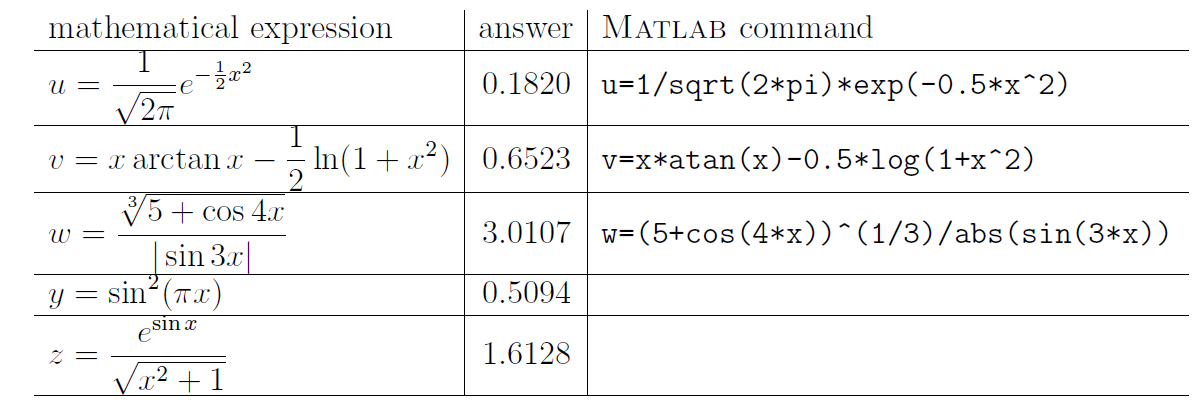6 Roots Of Unity
- Nth Roots Of Unity
- 6 Roots Of Unity Catholic
- 6 Roots Of Unity Lutheran Church
- 6 Roots Of Unity Lutheran Church
- 6 Roots Of Unity Meaning
- 6 Roots Of Unity Definition

Primitive Sixth Root of Unity and Problem 6 of the 42'd International Mathematical Olympiad We begin our story with the last problem of the 42nd International Math. Finding the roots of unity becomes simply a matter of inscribing polygons within the unit circle: a triangle for cube roots, a pentagon for fifth roots, etc. The roots are the points on the circle; their values have a real part and an imaginary part, and are measured along the horizontal and vertical coordinates respectively. The set of those roots is denoted by mun star. And we know, since our group is a cyclic group, that all n'th roots of unity are powers of a single one. And of course the primitive roots of unity are of the form zeta^a where a is prime to n. And what we also know that the number of those primitive roots is the Euler number phi of n. Finding the roots of unity becomes simply a matter of inscribing polygons within the unit circle: a triangle for cube roots, a pentagon for fifth roots, etc. The roots are the points on the circle; their values have a real part and an imaginary part, and are measured along the horizontal and vertical coordinates respectively. Roots Of Unity: When a complex number is raised to a positive integer and if it results in 1, then we say that number is a root of unity. For example: The 4th roots of unity.
Variants
Nth Roots Of Unity
Actions

- 2Primitive root in modular arithmetic
Primitive root of unity
A primitive root of unity of order $m$ in a field $K$ is an element $zeta$ of $K$ such that $zeta^m = 1$ and $zeta^r neq 1$ for any positive integer $r < m$. The element $zeta$ generates the cyclic group $mu_m$ of roots of unity of order $m$.
If in $K$ there exists a primitive root of unity of order $m$, then $m$ is relatively prime to the characteristic of $K$. An algebraically closed field contains a primitive root of any order that is relatively prime with its characteristic. If $zeta$ is a primitive root of order $m$, then for any $k$ that is relatively prime to $m$, the element $zeta^k$ is also a primitive root. The number of all primitive roots of order $m$ is equal to the value of the Euler function $phi(m)$ if $mathrm{hcf}(m,mathrm{char}(K)) = 1$.
In the field of complex numbers, there are primitive roots of unity of every order: those of order $m$ take the form$$cos frac{2pi k}{m} + i sin frac{2pi k}{m}$$where $0 < k < m$ and $k$ is relatively prime to $m$.
Primitive root in modular arithmetic
A primitive root modulo $m$ is an integer $g$ such that$$g^{phi(m)} equiv 1 pmod m text{and} g^gamma notequiv 1 pmod m$$for $1 le gamma < phi(m )$, where $phi(m)$ is the Euler function. For a primitive root $g$, its powers $g^0=1,ldots,g^{phi(m)-1}$ are incongruent modulo $m$ and form a reduced system of residues modulo $m$. Therefore, for each number $a$ that is relatively prime to $m$ one can find an exponent $gamma$, $0 le gamma < phi(m)$ for which $g^gamma equiv a pmod m$: the index of $a$ with respect to $g$.
6 Roots Of Unity Catholic
Primitive roots do not exist for all moduli, but only for moduli $m$ of the form $2,4, p^a, 2p^a$, where $p>2$ is a prime number. In these cases, the multiplicative groups of reduced residue classes modulo $m$ have the simplest possible structure: they are cyclic groups of order $phi(m)$. The concept of a primitive root modulo $m$ is closely related to the concept of the index of a number modulo $m$.
Primitive roots modulo a prime number were introduced by L. Euler, but the existence of primitive roots modulo an arbitrary prime number was demonstrated by C.F. Gauss (1801).
References
| [1] | S. Lang, 'Algebra' , Addison-Wesley (1984) |
| [2] | C.F. Gauss, 'Disquisitiones Arithmeticae' , Yale Univ. Press (1966) (Translated from Latin) |
| [3] | I.M. Vinogradov, 'Elements of number theory' , Dover, reprint (1954) (Translated from Russian) |
6 Roots Of Unity Lutheran Church
Comments
6 Roots Of Unity Lutheran Church
References
| [a1] | G.H. Hardy, E.M. Wright, 'An introduction to the theory of numbers' , Oxford Univ. Press (1979) |
Primitive root. Encyclopedia of Mathematics. URL: http://encyclopediaofmath.org/index.php?title=Primitive_root&oldid=35734